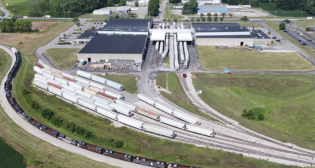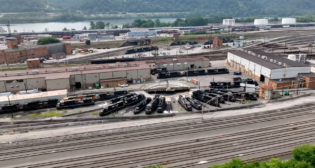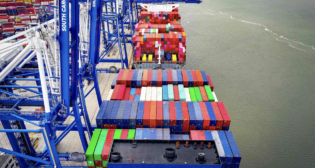
UPS to STB: Forced access forces us off the rails
Written by William C. Vantuono, Editor-in-ChiefThe U.S. Surface Transportation Board would be doing itself a favor if chooses not to mess with UPS and heed the gargantuan railroad customer’s call to deep-six forced access, otherwise known as “reciprocal switching.”
United Parcel Service, which moves more than one million containers and trailers by rail every day at an annual cost of about $1 billion a year—and ships the equivalent of 6% of U.S. gross domestic product and has significant lobbying clout on Capitol and with the U.S. Department of Transportation—says that if the STB’s proposed rulemaking on forced access is enacted, it will be forced to abandon rail for trucks, for its long-haul surface transportation needs.
In comments filed with the STB, UPS, a railroad customer for the past 40 or so years and, with J.B. Hunt and other major transportation firms, among the rail industry’s largest intermodal customer, said it is gravely concerned that rail service levels will deteriorate if forced access imposed, even though this regulatory change would not pertain to UPS shipments.
UPS said its “experience in other contexts leads it to conclude the implementation of a new reciprocal switching scheme will lead to decreased network velocity, diminished capital investments into the freight network, and deteriorating rail intermodal service levels. Ultimately, if rail intermodal service levels fall below UPS’s time-in-transit obligation standards, we would have no business option but to shift intermodal traffic back to the highway.” In addition to hurting rail network velocity,” forced access would force the railroads to incur significant costs that will compromise service and raise rates, UPS noted.



